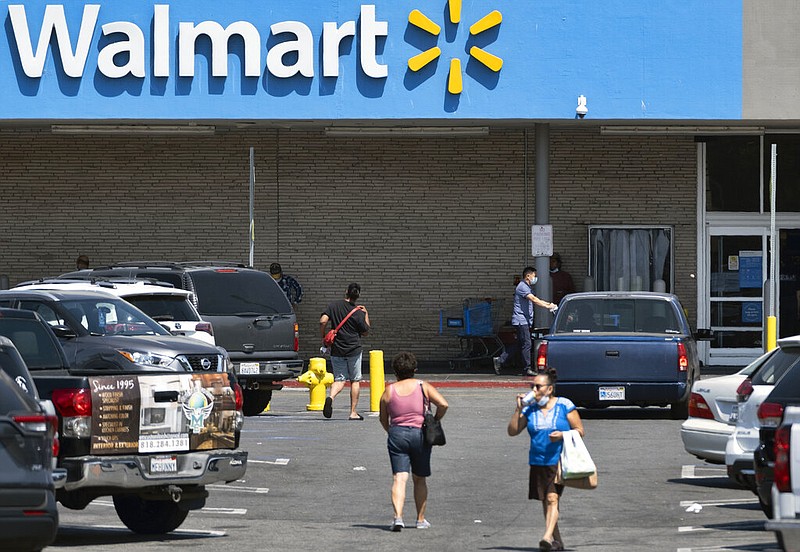Walmart Inc. is seeing a slower start than usual in back-to-school shopping as the pandemic has school districts debating what form of instruction to offer. But that hasn't hurt overall U.S. sales so far this quarter, the company said.
Continued uncertainty over when school will start and whether classes will be on campuses or online has parents delaying annual school shopping trips, Brett Biggs, Walmart's chief financial officer, told investors Tuesday.
"As a result, we expect the season to be choppy and come later than normal," Biggs said.
Still, sales at U.S. stores open at least a year, considered a key indicator of a retailer's health, "are in a fairly normal range to start the quarter," Biggs said. Items like laptops, tablets and home office furniture are selling well, he added, but sales of basic school supplies, backpacks and children's apparel are "understandably soft."
The Bentonville retailer reported earnings Tuesday for the second quarter, which ended July 31. While Walmart doesn't comment on projected sales, the impact of back-to-school shopping likely will be evident in its August-through-October earnings report on Nov. 17.
[CORONAVIRUS: Click here for our complete coverage » arkansasonline.com/coronavirus]
Doug McMillon, Walmart's president and chief executive officer, said in Tuesday's call with investors that back-to-school "is just one component of the quarter, and we'll have to sort out how customers want to shop as we go."
But Walmart's inventory "is well positioned" for whatever comes, McMillon said, "and we'll just react location by location. I don't think we've got a lot of liability exposure there. The sales exposure will be mixed as we go through the [third] quarter and manage other parts of our business."
Analysts and industry experts say retailers -- and parents -- are wise to prepare for various scenarios as the new school year begins.
Even if students return to the classroom, it's still possible schools will have to shift to virtual instruction if they experience virus outbreaks, said Mark Cohen, director of retail studies at Columbia University's Graduate School of Business.
[RELATED » Interactive: Economic impacts of covid-19 » arkansasonline.com/economy/]
Carol Spieckerman, a retail consultant and president of Spieckerman Retail, had predicted that parents would buy more electronics and desks or other home office furnishings. Her prediction fits with the current sales trend Walmart reported.
On the other hand, Neil Stern, a senior partner with MacMillanDoolittle, said physical attendance at school would release some "pent-up demand for apparel and more traditional school supplies."
The National Retail Federation, which released its annual back-to-school spending survey in July, updated the report on Monday. The new survey, conducted in early August by the trade association with research firm Prosper Insights and Analytics, found 63% of parents expect at least some classes to be taught online, up from 55% a month earlier.
Of those, 76% plan to buy computers, desks and other items for home classrooms, up from 72% in July.
"With many schools still not clear on whether students will be in the classroom or learning at home, parents have to be prepared for both," said Phil Rist, Prosper Insights executive vice president of strategy. "Nonetheless, a growing number of parents expect students to be at home."
In its initial report, the National Retail Federation said parents with children in elementary school through high school planned to spend an average of $789 per family, topping the record set last year of $697.
Total spending was expected to reach $33.9 billion, up from $26.2 billion last year and breaking the record of $30.3 billion set in 2012, the group said in July. It expected sales of laptops and computer accessories to drive spending.
Parents of college students said they planned to spend an average of $1,059 per family, for a total of $67.7 billion.
The August survey did not ask consumers the dollar amount they expected to spend. However, the survey found that 34% of parents expected to spend more than they'd anticipated in July, with more than half of those saying that was mostly for laptops and computer equipment.
Only 25% expect to spend less than they had thought in July, while 42% expect to spend about the same as they previously thought.

